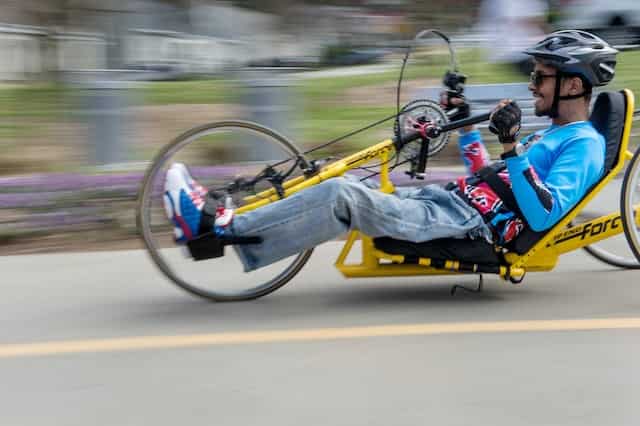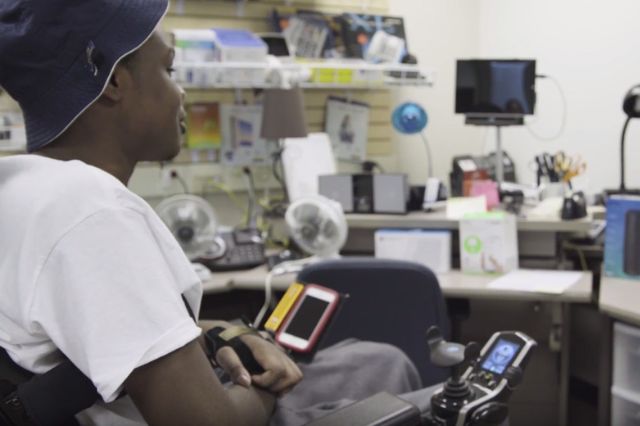Pre-Doctoral Externship: Spinal Cord Injury and Rehabilitation Psychology
We are not accepting applications for the 2025-2026 training year.
Externship Overview
This is an advanced intervention practicum involving assessment and therapeutic interventions with individuals with Spinal Cord Injuries (SCI), dual diagnosis (TBI/SCI), and other neurological disorders. An advanced student is generally defined as a fourth-year student (applying in the spring of the third year) in medical psychology, rehabilitation psychology, or neuropsychology tracks. The advanced student needs to have completed assessment and intervention curricula and completed at least one other external psychology practicum with a focus on psychotherapeutic interventions.
Externship Location
Shepherd Center
2020 Peachtree Rd NW
Atlanta, GA 30309
Length of Training
2 days/16 hours per week
- The length of training can be flexible depending on the program and practicum agreement.
- Thursdays are required, with externs picking either Tuesday or Wednesday as their other training day.
- Group supervision occurs on Thursday afternoons and is mandatory for all trainees and staff. The inability to attend group supervision because of other obligations/conflicts is an exclusion criterion for consideration.
Externship Supervisors and Faculty
All students are assigned a primary supervisor. Each week, the student will receive at least one hour of individual supervision, in addition to one hour of group supervision on Thursdays. Additional informal supervision regularly occurs as the student manages the demands of clinical services. Styles and modes of supervision vary according to the supervisor. The student may also receive tiered supervision by experienced licensed professional counselors or a Rehabilitation Psychology Fellow. The student receives feedback on case presentation, performance in team meetings and seminars, consultative/supervisory work, writing skills, and overall professional conduct. Future career planning and interviewing skills are also addressed during supervisory sessions.
Externship supervisors and faculty include:
- Punam Rahman, Psy.D., ABPP-RP, Clinical Neurorehabilitation Psychologist and Primary Supervisor
- Jackie Haar, MSW, LCSW, Multiple Sclerosis Counselor
- Jill Koval, Ph.D., ABPP-RP, Psychology Supervisor, Spinal Cord Injury
- Cheryl A. Linden, LPC, OT/L, Licensed Professional Counselor
Externship Rotations
Each extern will complete a total of four 3-month rotations, so there will be ample opportunity to complete rotations in a variety of areas to provide a well-rounded training experience. The first rotation, which is mandatory, is under the supervision of Punam Rahman, Psy.D., ABPP, to orient the extern to Shepherd Center and its culture, provide an in-depth overview and education of Rehabilitation Psychology, and mentorship regarding various aspects of professional development in preparation of internship and future practice.
The primary clinical population for this externship includes individuals with spinal cord injury. The most common precipitating factors leading to SCI seen in this facility include motor vehicle accidents, falls, gunshot wounds/assault, or neuromedical injury or disease, including multiple sclerosis, stroke, or tumors.
We utilize evidence-based, biopsychosocial approaches to evaluation, intervention, and rehabilitation. Inpatient evaluations include clinical bedside evaluations, patient and family psychosocial interviews, neurobehavioral assessments, cognitive screeners, and may include brief cognitive testing assessment (1.5-2 hours) batteries prior to discharge from the inpatient unit, if/as deemed clinically warranted based on clinical presentation.
A list of externship rotations are included below. It should be noted that other possible rotations could occur depending on the extern’s experience and interests.
Supervisor: Punam Rahman, Psy.D., ABPP
Core Features
- Introduction to adjustment and adaptation to disability and illness, changes within family roles, re-integration into the community, capacity evaluations (if it pertains), and crisis intervention.
- Introduction to interdisciplinary teamwork, including weekly teams, medical conferences, goal-setting/discharge meetings, and support groups for patients and families.
- Education about spinal cord injury and levels of injury and its implications from a biopsychosocial model.
Other Possible Externship Foci
- Dialectical Behavior Therapy
- Board-Certification Process for Rehab Psychology
Supervisor: Cheryl Linden, LPC
Core Features
- Education and training in problem-solving, stigma management, self-advocacy, drug and alcohol awareness, self-care, and sexuality within adolescents after injury.
- Exposure to how to facilitate school reintegration and lessen anxiety for the newly injured adolescent and family.
Training on family therapy with a minor.
Other Possible Externship Foci
- Intimacy after injury
Supervisor: Jackie Haar, MSW, LCSW
Core Features
- Involvement with individual therapy, couples counseling, and group psychotherapy with multiple sclerosis patients with a wide range of diagnoses and complexity, such as depression, anxiety, trauma, posttraumatic stress disorder, depression, sexuality, adjustment problems, and relationship difficulties.
Supervisor: Shatavia Thomas, DMFT, LMFT
Core Features
- Individual therapy with diverse outpatient clientele, including those diagnosed with spinal cord injury and multiple sclerosis; case conceptualization and treatment planning to support emotional, physical, and relational adjustment.
- Virtual psychoeducation group supporting patients diagnosed with spinal cord injury (SCI, outpatients).
- Facilitation of multidisciplinary treatment planning and collaborative care, prioritizing patient advocacy and consultations with colleagues across disciplines (physician, nursing, case management, PT, OT, SLP, etc.).
Other Possible Externship Foci
- Family consultations to support relational adjustment and caregiver wellbeing relevant to medical family therapy practice.
- Importance of culture, context, and creativity.
- Systemic/postmodern principles and practices such as solution focused brief therapy, narrative therapy, and collaborative therapy.
Application Process
Not Accepting Applications for 2025-2026 training year.





